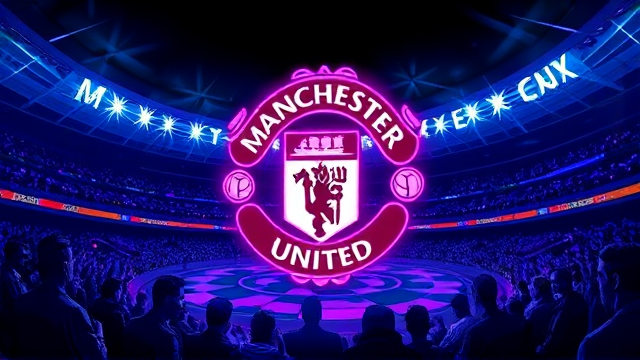Manchester United Denies Advanced Takeover Talks
The swirling vortex of speculation surrounding the future ownership of Manchester United was abruptly calmed, if not entirely stilled, by a firm denial from sources deep within the club, who told the BBC that reports of advanced takeover talks were wide of the mark. This comes hot on the heels of a social media bombshell dropped by Saudi Sheikh Turki Al al-Shaykh, who publicly declared that negotiations for the storied club were in an advanced stage, a claim that sent the Red Devils' faithful into a familiar, frenzied state of hope and apprehension.For a fanbase that has endured the Glazer family's leveraged buyout since 2005, every whisper of a sale is met with a mixture of desperate yearning and weary skepticism, a legacy of protests, green-and-gold scarves, and a deep-seated belief that the club's soul has been mortgaged for profit. The sheikh's tweet, while electrifying, represents the latest in a long line of would-be saviors and speculative bids, a saga that has seen British billionaire and confessed United fan Sir Jim Ratcliffe circle the club with palpable intent, yet now finds himself reportedly 'not in the loop' on these alleged new developments.This entire episode is a masterclass in modern football's high-stakes theatre, where a single post on a platform like X can move markets, unsettle squads, and ignite global debate, forcing the club's internal machinery into a reactive posture to manage the narrative. The core tension here is not merely about a potential change in the share register; it's a fundamental clash between the club's identity as a community institution and its reality as a global financial asset, a tension that has defined the post-Ferguson era of trophy droughts and commercial triumphs.One cannot help but draw parallels to other seismic takeovers in the Premier League—the transformative, state-backed acquisition of Manchester City and the more turbulent, debt-laden purchase of Chelsea—and wonder which model, if any, a new United owner would pursue. The financial landscape is equally fraught; while the club remains a commercial juggernaut, its debt burden and the staggering cost required to both refurbish a crumbling Old Trafford and fund a squad capable of challenging Pep Guardiola's City create a financial imperative that any serious bidder must confront.The sheikh's involvement, real or imagined, immediately raises questions about the Premier League's Owners' and Directors' Test, especially in the wake of the league's increased scrutiny on related-party transactions and the source of wealth, a regulatory environment far more complex than when the Glazers first arrived. For manager Erik ten Hag, this persistent off-pitch noise is a formidable opponent, a distraction that can unsettle player recruitment and contract negotiations, forcing the footballing staff to operate in a state of perpetual uncertainty.The ultimate consequence of this ongoing saga will reverberate far beyond the Theatre of Dreams; it will signal the future direction of one of the world's most iconic sporting brands, determining whether it becomes a vehicle for soft power, a trophy asset for a billionaire, or, in the wildest dreams of its support, a club returned to its community roots. Until a credible, formal offer materializes and navigates the labyrinth of approval, the Manchester United ownership saga remains less a negotiation and more a global spectator sport, played out in boardrooms, on social media, and in the anxious hearts of its millions of followers.
Latest News
In a stunning twist of fate that will be debated in Russian hockey circles for years, SKA Saint Petersburg snapped Avtomobilist Yekaterinburg's formidable
5 minutes ago0 comments
In a dramatic Monday night showdown that will be debated in KHL taverns for years, SKA St.
10 minutes ago0 comments
In a move that feels less like a routine practice squad addition and more like a calculated chess play, the New York Giants are strategically reuniting rookie
15 minutes ago0 comments
The full-time whistle at Windsor Park provoked a complex symphony of emotions that perfectly encapsulated Northern Ireland's heartbreaking yet heroic 1-0
30 minutes ago0 comments
The Tennessee Titans' decision to fire head coach Brian Callahan on Monday, with the team mired at 1-5, was not a sudden shockwave but the inevitable
40 minutes ago1 comments
The beautiful game, so often a theater of dreams, once again finds itself an unwilling stage for the world’s most intractable conflicts as the Italian national
60 minutes ago0 comments
The ice was absolutely electric last night, folks, as the NHL’s regular season continued to deliver the kind of drama we live for.
1 hour ago0 comments
In the charged atmosphere of a rivalry that divides a state and captiVates a nation, Utah head coach Kyle Whittingham executed a strategic sidestep that spoke
1 hour ago1 comments
It’s quiet here...Start the conversation by leaving the first comment.
